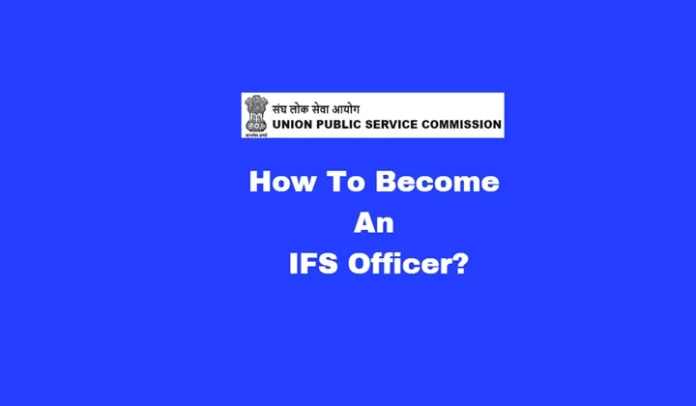The Indian Foreign Service (IFS) is one of India’s most prestigious career paths. It allows individuals(IFS Officer) to represent the country internationally and handle diplomatic relations with foreign nations. IFS officers serve as Indian diplomats in various capacities, including ambassadors, high commissioners, and consular officials. If you aspire to travel the world, negotiate international treaties, and influence global affairs on behalf of India, a career in the IFS could be your calling.
This detailed guide explains the process of becoming an IFS officer, from eligibility criteria and examination details to training and responsibilities as a diplomat.
What is the Indian Foreign Service (IFS)?
The Indian Foreign Service (IFS) is a central civil service under Group A and B of the Union Government. It is the diplomatic arm of the Indian government, responsible for representing India’s interests abroad, promoting Indian culture, and protecting Indian citizens in foreign countries. IFS officers work under the Ministry of External Affairs (MEA) and manage India’s international relations, trade policies, consular services, and more.
Steps to Become an IFS Officer
1. Educational Qualification
To become an IFS officer, candidates must meet the following educational criteria:
Minimum Qualification:
- A bachelor’s degree in any field from an accredited university.
- Candidates can pursue any field of study (science, commerce, arts, or engineering) for graduation as long as the degree is from a recognized institution.
- Final-year students awaiting results can also apply, provided they complete their degree before the final stage of the selection process.
2. Age Limit
The age criteria for IFS aspirants are:
Minimum Age: 21 years
Maximum Age: 30 years (as of August 1 of the year of the examination).
Age Relaxation:
| Category | Relaxation |
|---|---|
| OBC candidates | 3 years (up to 33 years) |
| SC/ST candidates | 5 years (up to 35 years) |
| Physically Disabled candidates | 10 years |
3. Nationality
To become an IFS officer, candidates must be:
- A citizen of India
- A national of Nepal or Bhutan or a Tibetan refugee who entered India before January 1, 1962, to establish permanent residency in the country.
IFS Officer Examination Process
To become an IFS officer, candidates must pass the Civil Services Examination (CSE) conducted by the Union Public Service Commission (UPSC). The CSE is a three-stage examination, and IFS is one of the top-ranking choices among the 24 civil services offered through the exam.
1. Preliminary Examination (Prelims)
Format: Objective-type test with two papers:
General Studies Paper I: Current events, history, geography, and economics.
General Studies Paper II (CSAT): An aptitude test that assesses comprehension, logical reasoning, and analytical skills.
Marks: 400 (200 marks per Paper)
Duration: 2 hours per Paper.
Purpose: Prelims serve as a screening test—only the marks of Paper I are used to determine eligibility for the next stage.

2. Main Examination (Mains)
Format: Descriptive-type written exam with nine papers.
Essay: 250 marks.
General Studies I, II, III, and IV: Topics include Indian heritage, governance, technology, ethics, international relations, and more (250 marks each).
Optional Subject (Paper I and II): Candidates choose one optional subject from a list of subjects (250 marks each).
English Language and Indian Language Papers: These papers are qualifying (300 marks each).
Marks Counted for Merit: 1750 out of 2025 marks.
The subjects which are covered by the General Studies Papers in Mains Exam are:
| General Studies | Subjects Covered |
|---|---|
| General Studies I | Indian Heritage and Culture, History and Geography of the World, Society |
| General Studies II | Governance, Constitution, Polity, International Relations and Social Justice |
| General Studies III | Economic Development, Technology, Bio-Diversity, Environment, Security and Disaster Management |
| General Studies IV | Aptitude, Integrity and Ethics |
For Papers VI and VII of the mains examination, candidates must choose one optional subject from the following list:
| Agriculture | Geography | Physics |
| Animal Husbandry and Veterinary Science | Geology | Political Science and International Relations |
| Anthropology | History | Psychology |
| Botany | Law | Public Administration |
| Chemistry | Management | Sociology |
| Civil Engineering | Mathematics | Statistics |
| Commerce and Accountany | Mechanical Engineering | Zoology |
| Economics | Medical Science | |
| Commerce and Accountancy | Philosophy |
3. Personality Test/Interview
Marks: 275
Purpose: To assess the candidate’s suitability for a career in the civil services, focusing on personality traits such as diplomatic communication, problem-solving, and leadership.
Candidates are ranked based on their cumulative Mains and the Interview scores. The Indian Foreign Service assigns top-ranking candidates who choose the IFS.
IFS Officer Training
Candidates undergo comprehensive training after clearing the UPSC Civil Services Examination and being selected for the IFS. The training process is as follows:
1. Foundation Course at LBSNAA
Duration: 3 months
Selected candidates undergo foundational training at the Lal Bahadur Shastri National Academy of Administration (LBSNAA) in Mussoorie along with other civil services officers.
2. Training at the Foreign Service Institute (FSI)
Location: New Delhi
After the foundation course, the Foreign Service Institute (FSI) provides IFS trainees with specialized training. They study international relations, diplomacy, India’s foreign policies, and protocol here. The program also emphasizes training in foreign languages and negotiation skills.
3. Attachments and Field Training
Duration: Several months
Trainees are attached to different Indian missions abroad and government bodies like the Ministry of External Affairs to gain hands-on experience in diplomacy and international relations.
4. Probationary Period
After completing the FSI training, IFS officers serve as Third Secretaries at Indian embassies or consulates worldwide. During this probationary period, they further refine their diplomatic and communication skills.
IFS Officer Career Progression in the Indian Foreign Service
An IFS officer career spans various roles and international postings, including:
Third Secretary (Entry-level post after probation)
Second Secretary
First Secretary
Counselor
Deputy Chief of Mission
Ambassador/High Commissioner
Permanent Representative to the UN/International Organizations
Officers also serve in various capacities in the Ministry of External Affairs and represent India at international forums like the United Nations, WTO, and G20.
Essential Skills Required for IFS Officer
Excellent Communication Skills
Diplomats need strong verbal and written communication skills to represent India’s interests effectively.
Cultural Awareness
IFS officers must be sensitive to and knowledgeable about different cultures.
Negotiation and Persuasion
Diplomatic negotiation skills are critical in resolving international conflicts or securing agreements.
Adaptability and Resilience
Officers may face challenging conditions abroad and must adapt to different environments.
Leadership and Decision-Making
Strong leadership and quick decision-making abilities are essential, especially during international crises.
Becoming an IFS officer is a challenging yet rewarding career that allows individuals to represent India on the global stage and shape its international relations. The journey requires dedication, rigorous preparation for the UPSC exam, and a passion for diplomacy and global affairs. For those who succeed, the Indian Foreign Service offers a dynamic and fulfilling career with opportunities to influence global policies, engage in cultural exchange, and protect India’s interests abroad. If you aspire to make a meaningful impact in international relations, pursuing a career as an IFS officer could be your path to a distinguished and impactful profession.
IFS Officer Exam Calendar 2025
| UPSC Examinations/ Recruitment Calendar 2025 | Download |
FAQs
Is knowledge of a foreign language required for IFS?
Although it is not required for the UPSC exam, learning a foreign language is an essential part of IFS training. Officers must become proficient in the language of the country they are posted in.
What subjects should I choose for the UPSC exam to become an IFS officer?
Candidates can choose any optional subject for the UPSC Mains exam. However, subjects related to international relations, political science, or history might be beneficial.
What is the starting rank of an IFS officer?
IFS officers begin their careers as Third Secretaries during their probation period. Upon confirmation, they become Second Secretaries in Indian embassies or consulates abroad.
How often do IFS officers get posted abroad?
IFS officers are posted abroad for approximately 3-4 years. After each posting, they usually return to India for a domestic assignment at the Ministry of External Affairs.
What is the work-life balance like for an IFS officer?
While the job can be demanding, IFS officers enjoy significant perks like international travel, diplomatic immunity, and exclusive housing, although work hours may vary depending on diplomatic engagements.
Can I become an IFS officer after completing my studies abroad?
Yes, as long as your degree is recognized by an Indian university, you are eligible to sit for the UPSC Civil Services Exam.
What is the retirement age for an IFS officer?
The retirement age for an IFS officer is 60 years, although extensions can be given in some cases based on performance and government requirements.
Can an IFS officer be posted in a conflict zone?
Yes, IFS officers may be posted in areas with diplomatic importance, which could include conflict zones. However, they are provided with security and facilities.
Do IFS officers get to travel with their families?
Yes, IFS officers are typically allowed to travel and live with their families at international postings.


